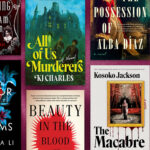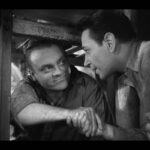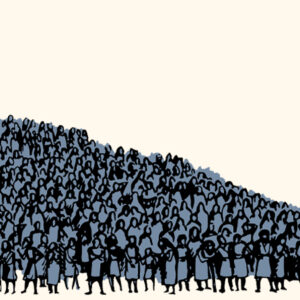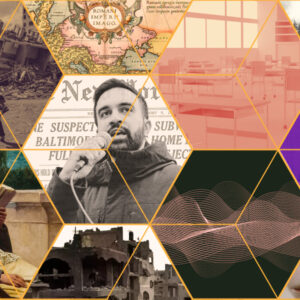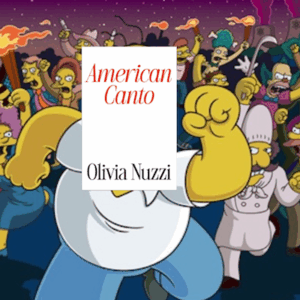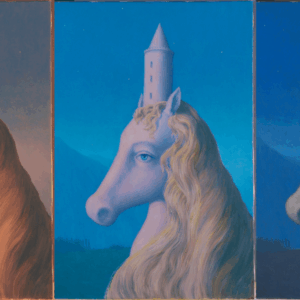
Marina Budhos on Muslim Stereotypes, Surveillance, and Trump's America
Aviva Stahl interviews the Novelist about Her New Book, Watched
As soon as I heard about Marina Budhos’s latest young adult novel, Watched, I knew I had to read it. I was fascinated to see how a novelist would approach writing about a topic—surveillance—that I have covered as a reporter. Watched follows Naeem, a teenage Muslim-American from Jackson Heights, Queens, as he encounters the (terrifying) reach of the NYPD’s counter-terrorism efforts. After getting caught for shoplifting, Naeem is told he can strike a deal—they’ll make the charges disappear if he agrees to inform on his community. At first, Naeem doesn’t mind the work; he even seems to enjoy it. As the story progresses, however, the young protagonist starts to wonder just how far he’s willing to go to please his handlers.
“For the past few years there’s been another kind of pressure: a vibration around us, the air pressing down, muffling our mouths,” Naeem writes in the first chapter of the book. These words made me ache. Last fall, I published an exposé on Gothamist about an NYPD officer who spent several years infiltrating a group of Muslim female college students at Brooklyn College. My sources described that same weighted sense of watching—how it stifled their political language and their religiosity, how it even choked off the intimacy and camaraderie so many college students have with their friends. In post 9/11 Muslim-America, even your closest buddy could be an informant—or they might think you’re one.
That “pressure,” that “vibration,” of being watched dug deep into the women I met—it still permeates their lives much like it permeates the pages of Watched. Marina Budhos has done an exquisite job capturing how surveillance shapes the tenor and texture of life in NYC’s Muslim communities. As we brace ourselves for the reality of a Trump presidency, maybe even with former Mayor Rudy Giuliani as Attorney General, her work could not be more important. I spoke with Ms. Budhos to find out more about her process and the role of fiction in interrogating one of the most pressing political issues of our day.
Aviva Stahl: Should I just jump right in? First off, I loved the book. It was beautiful.
Marina Budhos: Thank you!
AS: What drew you to writing Watched?
MB: Where it first came from had to do with my prior book, Ask Me No Questions, which was about an undocumented family snagged in that post-9/11 period. It was a territory that I had explored in another way, and a number of my readers had asked, “Are you doing a sequel?” I don’t write sequels per se, but the more I thought about returning to that territory, the more I thought, well, really the next beat in the story would be about surveillance. So I began to track it, to pay attention. I remember reading your pieces in that tracking process and just sort of immersing myself in these stories.
And then one day, somebody—she was a lawyer—told me about a young man she met who had been sort of boasting that he was an informant. His father was a shopkeeper in Jackson Heights. He seemed to derive a certain swagger, a sense of power from doing it. And I thought, that is so fascinating. You know, that he thought he was succeeding beyond his father, his immigrant father, and yet she also mentioned how he felt a little trapped by it. So, I started to feel like I had all the dimensions of a story that could find its way into this territory of surveillance.
AS: As someone who’s written journalistically about the sense of constantly being watched, whether it’s in a mosque or a student group or walking down the street—well, sometimes it felt like a heavy burden to communicate that experience to a readership that may have never felt it themselves or heard others describe it first-hand. How did you approach writing about that sense of being watched, how it affects people and communities?
MB: I’m so glad you mentioned that because the inspiration for a lot of my work is, I have to say, journalists. I feel that journalists like you are doing a lot of the hard work for me. When you’re alerting me to something that I want to know more about—what happens for me as a novelist is I then try to really think about what it’s like to be inside that experience.
I wanted to viscerally get into what that watching would feel like. I wanted to inhabit a young man who’s trying to come into his own, and yet everywhere he goes, this atmosphere is pressing down on him. He feels watched on so many different levels and is so unsure of his identity in the process. So again, my own sense of inspiration comes when I am inspired by what journalists are doing the hard work of finding, and then I want to take that and try to go imaginatively inside of it.
There’s one other aspect to writing this kind of novel, which is that there are the news reports about this kind of surveillance, about what it is to be a Muslim teen, and about that heightened watching. And part of my aim is to bring the lyrical to the political. Lyrical language and the lyrical moment—the reason for that is, in a sense, that it brings out the tender, it brings out the empathetic and the tender. That’s what I believe a novel can do.
AS: Naeem is this very complex but imperfect character—he smokes weed, he gets into trouble, but at the end of the day he also wants his family to be proud of him, and he wants to be proud of himself. It seems like there are two stereotypes that trap South Asian and Muslim youth: on the one hand, the model minority myth, and on the other hand, the idea that everyone’s a terrorist.
MB: Right. Two opposite poles. With nothing in between!
AS: But I think your novel as a whole brings humanity to this broad range of Muslim characters and family members. I was wondering what you think that sort of representation means for Muslim youth or adults who read the novel but also for an outside audience.
MB: I’m hoping that a book like this is both doing something for those within and those without. It’s giving those outside a kind of broader range of—yeah, you could grow up in a somewhat devout family, or rather devout because it’s part of your culture, and yet you can still be kind of a screw-up. And Muslim boys are given a bit more latitude; you may be more street, or you may be going to a public school that’s a little bit of a holding pen, and you know, there are a lot of kids there that actually don’t do that well . . . There are some who have it together and a lot who don’t, who fall between the cracks.
For those who are on the inside, I’m just hoping they can see a wider range of young people like themselves in literature, in fiction, because I really feel as if we’ve only begun to scratch the surface.
The other thing I was thinking a lot about when I was writing Naeem is that I wanted this to be the kind of book where it’s not only Muslim teens who see themselves represented. I can imagine a Dominican teen, or another New York City kid, or just any kid who’s one of those who falls through the cracks at his high school, who’s looking for masculine heroes. My aim is to find these characters who, yes, are specifically Muslim, but who I can also imagine having resonance for kids of other backgrounds.
AS: I wanted to talk to you about the diverse representation of Muslim women in this story. There’s Naeem’s stepmother, who had an arranged marriage at a young age. Then there’s Taslima, the community organizer who is fiercely independent and strong willed. There’s also Ishrat, who decides to wear the hijab for largely political reasons. (“I do this to let them know. It’s who I am. Take it or leave it, right?” she tells Naeem at one point).
What are the challenges and risks of writing these kinds of characters, and what does that this diverse representation mean, given the ways in which Muslim women are so frequently flattened and claimed by all “sides?”
MB: Taslima is a carry over character from Ask Me No Questions. She was just as fierce then, though she was more rebellious and not as set on what she ultimately became. So for me, this was a chance to follow through with her. And follow through to where not everything has worked out. She’s had a divorce; the community doesn’t quite know what to make of her. She’s an odd peg, and yet she’s fiercely loyal. So there’s been a cost to her rebelliousness, and I wanted to portray that.
The young woman Ishrat really grew out of me listening and talking to young women about themselves, and that whole emerging idea of her own decision to cover her hair really grew organically out of conversations I’ve had. I thought, you know, we don’t get to see that way of looking at it. And I wanted Naeem to come to an understanding that though he may have dismissed her in the past—to him she seemed like a goody two shoes who only does what her parents tell her to do, which she would’ve been contemptuous of—he comes to see strength in that.
With the stepmother, I was searching for a kind of humanity and depth. She had an arranged marriage, and I think at times we come from this very Western point of view like, “Oh! That means she was oppressed! She was married off when she was 18!” We’re so ready to pigeonhole that experience. There’s more subtlety to it, and it turns out that she has a deeper understanding of her life that again, Naeem doesn’t even understand.
AS: I was curious—when you think about the kind of agency you give Naeem in his wanting to secure a sense of power from watching . . . do you think that journalists have failed to portray the full complexity of the experience of “watching?” You’re so right that people aren’t purely passive recipients of the situations that they find themselves in.
MB: Where this came from is, of course, the story about the young man I told you earlier, and also from the AP exposé, when Matt Appuzo and Adam Goldman wrote about a young man who was an informant, a Bangladeshi. And they gave a little profile of him. The funny thing is, I had actually started the novel before I came upon that story; sometimes, I start fiction, and I actually find things as I’m going.
One line from this man fascinated me, the fact that he considered himself a hero. And to me, that is unexplored territory, what someone might gain from informing. Of course there is what we talked about earlier, this oppressive way in which surveillance has muzzled and muffled people’s lives, but I do think it’s too easy to only regard people as victims. Within that territory, you’re going to have young men trying to find what they can get out of it.
AS: When I attended your recent book launch event at the Asian American Writing Workshop, you said that you started the novel thinking about the cops as the bad guys but that it got more complex over time. I was wondering if you could unpack that a bit?
MB: Again, partly because I was trying to do a psychological story, there were two things that impacted me as I was writing it. I wanted to write a complex story, so I didn’t want to have easy villains. I was thinking about Naeem’s masculinity; as you say, he is vulnerable to the kind of manipulation they do, in terms of luring him in to becoming an informant. But at the same time, they are offering him a way to feel as if he’s doing something—a kind of affirmation or meaning, which was so lacking in his life up to that time. Which is due to both his own screwing up, but also the fragility of his home life. [Naeem] is hungry for a certain type of manhood, a certain type of follow-through.
So that was one piece of it. The other piece of it that I was affected by is that I was writing the novel during the rise of ISIS. There was all this online recruiting starting to heat up, and so I had to think to myself, well, now what? What happens if you bring that into the novel? Does it make everything the cops do—does it make them completely bad cops? I wanted to raise the specter of this complicated push and pull that we’re living in. At the same time, I think I felt pretty clearly that the use of the sting operation was a step too far—that even if they weren’t such bad cops, they were engaged in this extensive sting operation that is dubious on some level.
AS: What was your greatest anxiety before the book was published? And how have the reactions to the novel been so far?
MB: The greatest anxiety is that nutcases, you know [laughs] come after me. I’ll be really honest, I mean that, sincerely. Because of what I’m writing about I actually felt a little vulnerable at times. Obviously right now the book is making its way in very sympathetic circles, but what if it moves out beyond that with the internet? I wonder, will it hit, because it’s a polarizing issue? Will something enflame around it? I don’t know.
AS: We’re all just coming to terms with the reality of a Trump presidency. What do you think this novel means given the outcome of the recent election?
MB: Writing novels that bring the lyrical and the visceral to light, I can’t think of anything more important after the election of Trump. Obviously, many groups have been bludgeoned by language and toxic violence, both physically and through words that this election brought on. We’re all traumatized.
But of course the specific experience of Muslims, who were already experiencing this kind of watching, only went into a kind of overdrive. With a Trump presidency of course, we’re also facing this. I can think of nothing more important than really and truly asserting this story and this subjective experience. He may be in the White House, but he doesn’t have control over the narratives that must be told.
I feel, now that I’m picking myself up 48 hours later, I do feel that it is so crucial to enter that lyrical space of knowing what it is to be a Muslim teenager ensnared in this.
Aviva Stahl
Aviva Stahl is a Brooklyn-based journalist who writes about national security, prisons and immigration detention. Her work has been published at a broad range of outlets including the Guardian, the Nation, VICE and the Village Voice. You can follow Aviva @stahlidarity.












